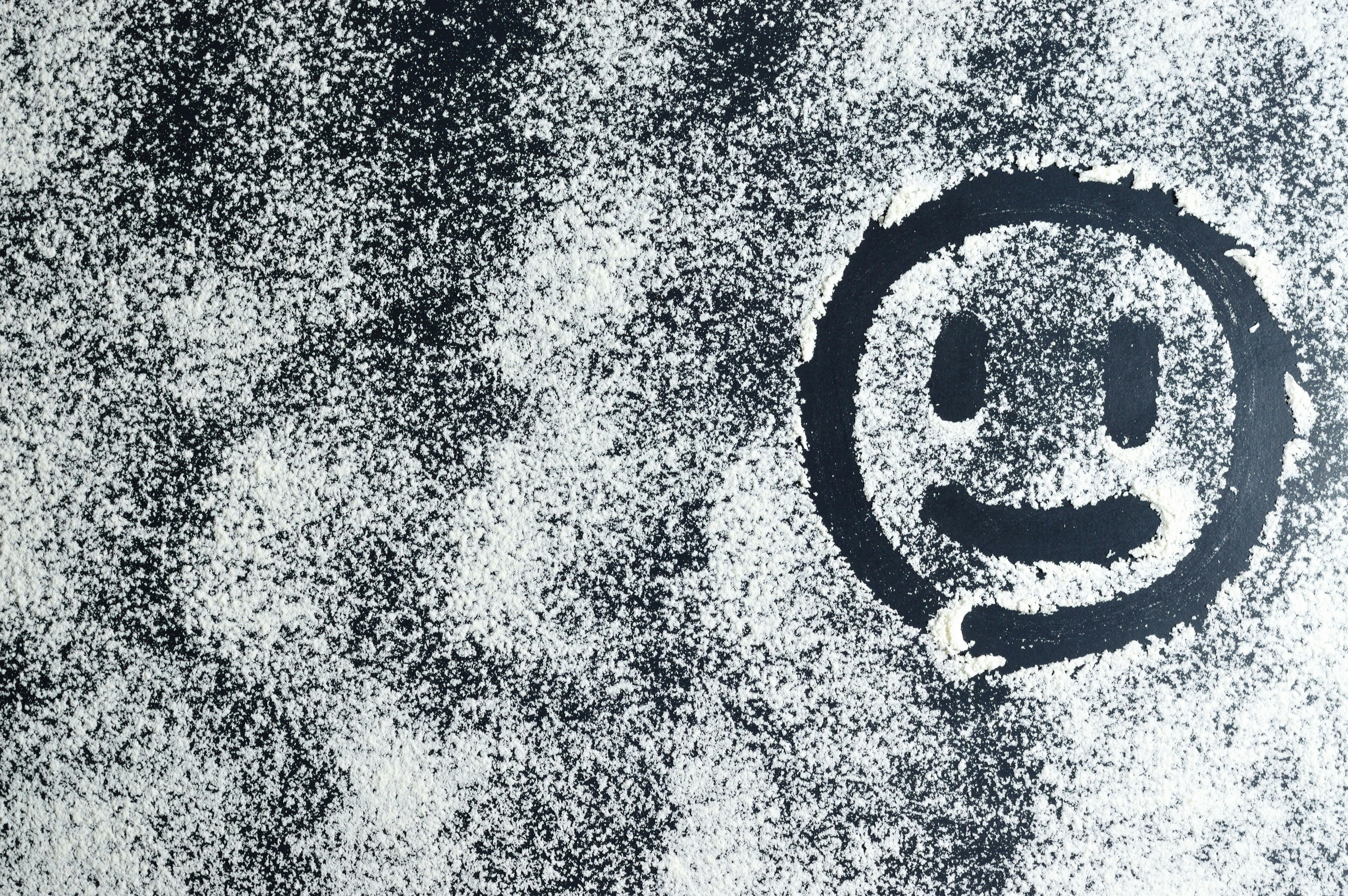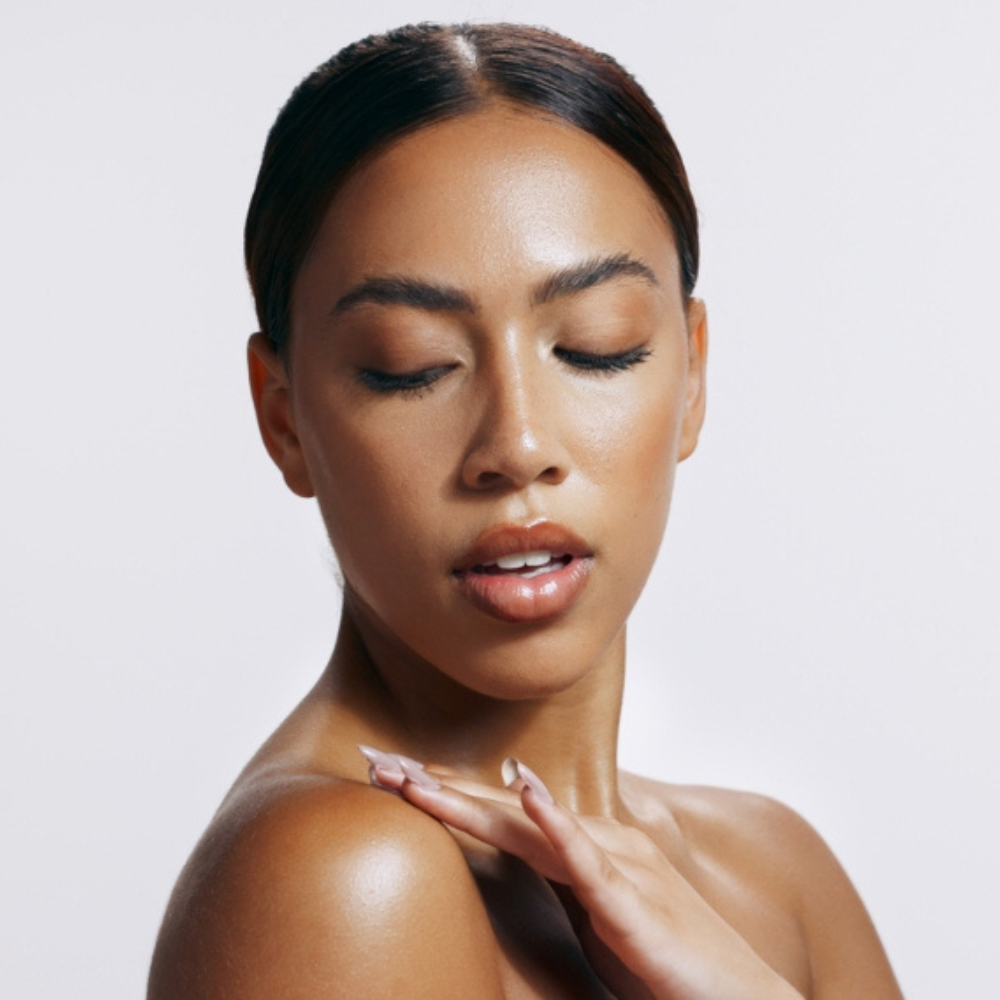Bakuchiol powder is a plant-based compound extracted from the seeds and leaves of the Psoralea corylifolia plant, also known as Babchi. It has gained popularity in skincare for its anti-aging and skin-soothing properties, often touted as a natural alternative to retinol. While they both share similar properties, bakuchiol powder is considered a gentler alternative. But what makes each unique and which should you incorporate into your skincare routine?
Bakuchiol vs. retinol: Similarities
Bakuchiol and retinol boast a number of similarities, including:
- Increased cell turnover and stimulates collagen production. Bakuchiol does this through different receptors and pathways in the skin, while retinol accomplishes this by binding to retinoic acid receptors in the skin.
- Both bakuchiol and retinoids reduce fine lines and wrinkles
- The two ingredients can improve skin firmness and elasticity
- They even out skin tone, leading to diminished hyperpigmentation. With bakuchiol, noticeable improvements can be seen within a few weeks, while retinol needs several weeks to a few months to show improvements.
Bakuchiol vs. retinol: Differences
While both are similar in the results they offer, there are some key differences, including:
Bakuchiol is generally well-tolerated with minimal side effects. However, there can be rare cases of mild irritation or allergic reactions. Also, it does not increase photosensitivity (sun sensitivity). On the other hand, retinol can cause irritation, redness, dryness, and peeling, especially during the initial stages of use (the “retinol purge”). Plus, it increases photosensitivity, necessitating the use of sunscreen to prevent sunburn and further skin damage.
Bakuchiol is best for sensitive skin types, those in search of a natural alternative, and individuals who cannot tolerate retinol. In addition, it can be used both morning and night without concerns about sun sensitivity. Retinol is best for acne-prone skin and is also favored by individuals with significant signs of aging and those seeking potent, clinically proven anti-aging benefits. It’s typically used at night due to increased sun sensitivity. Sunscreen is essential during the day.
Bakuchiol powder is widely available in over-the-counter skincare products, often marketed as a natural or gentler alternative to retinol. Whereas, retinol is available in both over-the-counter and prescription forms, with prescription forms (such as tretinoin) being more potent and regulated.
Both bakuchiol and retinol offer significant anti-aging benefits, but their differences in mechanism, usage, side effects, available forms, and suitability for various skin types make them unique. Bakuchiol is an excellent choice for those with sensitive skin or seeking a natural alternative, while retinol is preferred for its potent, clinically proven efficacy in addressing more severe signs of aging and acne.
Benefits of bakuchiol powder
By now, you can tell that bakuchiol powder offers a number of benefits for the skin, such as:
- Anti-aging: Bakuchiol can help improve skin elasticity and reduce the appearance of wrinkles and fine lines.
- Collagen production: It stimulates collagen production, which is crucial for maintaining skin firmness and elasticity.
- Evens skin tone: Bakuchiol can help reduce hyperpigmentation and even out skin tone.
- Smoother skin: It promotes cell turnover, leading to smoother, more radiant skin.
- Anti-inflammatory: Bakuchiol has anti-inflammatory properties that can help reduce acne and soothe irritated skin.
- Antibacterial: Its antibacterial properties can help reduce acne-causing bacteria on the skin.
- Less irritation: Unlike retinol, bakuchiol is less likely to cause irritation, redness, or peeling, making it suitable for sensitive skin.
How to use bakuchiol powder

Here are easy ways to incorporate bakuchiol powder into your routine:
- Mix with carrier oils: Bakuchiol powder can be mixed with carrier oils like jojoba oil, argan oil, or rosehip oil to create a serum.
- Add to creams and lotions: You can add a small amount of bakuchiol powder to your favorite moisturizer or cream.
- Dilute: Ensure you dilute the powder properly to avoid irritation. A common concentration is around 0.5% to 2% bakuchiol in the final product.
- Patch test: Always do a patch test on a small area of your skin to check for any adverse reactions before applying it to your face.
- Use in your night routine: Bakuchiol can be used both day and night, but many prefer to incorporate it into their nighttime routine. Apply it after cleansing and toning but before moisturizing.
- Consistency: Use this powder consistently for several weeks to see noticeable improvements in skin texture and tone.
- Introduce gradually: If you are new to bakuchiol powder, start with a lower concentration or less frequent application to allow your skin to adjust. Then, gradually increase the concentration or frequency as your skin builds tolerance.
Note:
- Be cautious when applying bakuchiol around sensitive areas, such as the eyes and mouth because these areas are more prone to irritation.
- If you have underlying skin conditions or are pregnant or breastfeeding, consult with a healthcare professional before incorporating bakuchiol into your skincare routine.
- Store bakuchiol powder in a cool, dry place away from direct sunlight to maintain its potency. Ensure the container is tightly sealed to prevent moisture from getting in.
Featured image: Jacob Wackerhausen/iStock
For the latest in fashion, lifestyle, and culture, follow us on Instagram @StyleRave_
—Read also
























































![Key Metrics for Social Media Marketing [Infographic] Key Metrics for Social Media Marketing [Infographic]](https://www.socialmediatoday.com/imgproxy/nP1lliSbrTbUmhFV6RdAz9qJZFvsstq3IG6orLUMMls/g:ce/rs:fit:770:435/bG9jYWw6Ly8vZGl2ZWltYWdlL3NvY2lhbF9tZWRpYV9yb2lfaW5vZ3JhcGhpYzIucG5n.webp)


















